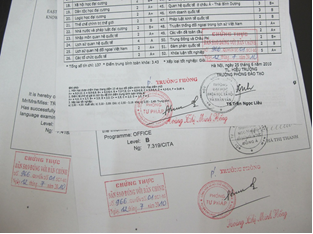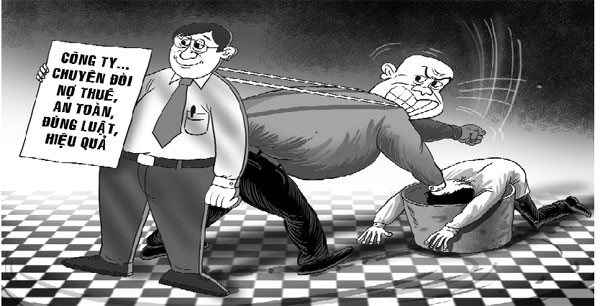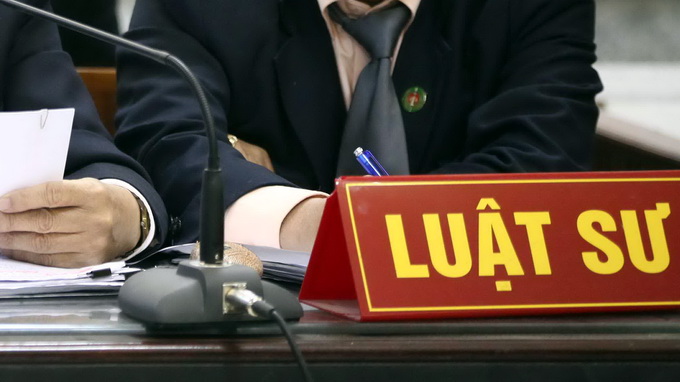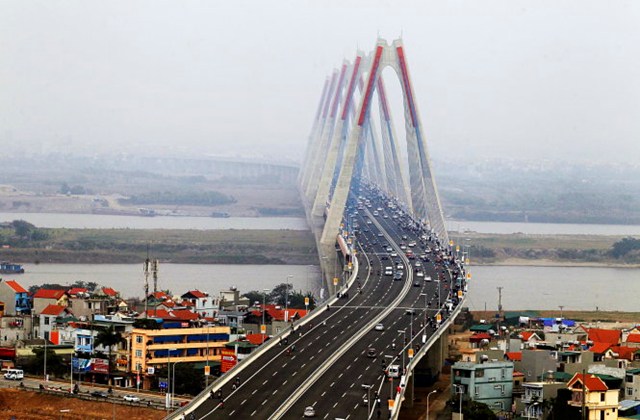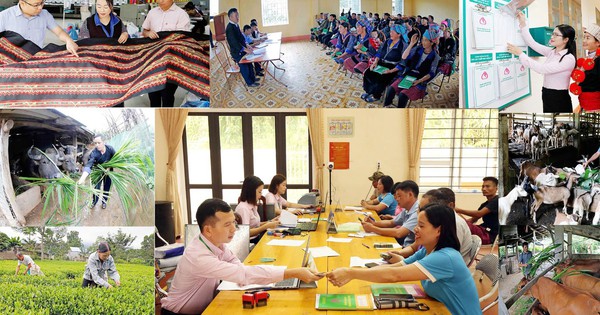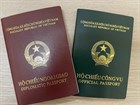Before the Law on Citizen Reception was issued, there were many documents regulating citizen reception such as Regulations on citizen reception in Chapter V of the Law on Complaints and Denunciations No. 09/1998/QH10 amended and supplemented by several provisions under Law No. 26/2004/QH11 and Law No. 58/2005/QH11, Chapter V of the Law on Complaints No. 02/2011/QH13. The regulations on citizen reception in these legislative documents of Vietnam expire on July 1, 2014.
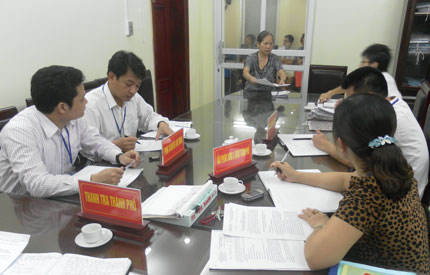
Law on Citizen Reception 2013 comes into effect on July 1, 2014, consisting of 9 chapters with a total of 36 Articles. To be specific:
Chapter I: "General Provisions", includes 9 articles, from Article 1 to Article 6. This chapter prescribes the scope of adjustment, explanations of terms, principles of citizen reception, responsibilities of citizen reception, management of citizen reception work, and prohibited acts.
Chapter II: "Rights and Obligations of Those Lodging Complaints, Denunciations, Petitions, and Feedback; Responsibilities of Citizen Reception Personnel", includes 3 articles, from Article 7 to Article 9. This chapter prescribes the rights and obligations of those lodging complaints, denunciations, petitions, and feedback; responsibilities of citizen reception personnel; and cases in which reception can be refused.
Chapter III: "Citizen Reception at the Central, Provincial, and District Citizen Reception Offices; Citizen Reception at Commune Level" (comprising 6 articles, from Article 10 to Article 15). This chapter prescribes the Central Citizen Reception Office, citizen reception at the Central Office; citizen reception at Provincial Offices; citizen reception at District Offices; the tasks and powers of the Head of the Citizen Reception Committee; and citizen reception at communes, wards, and commune-level towns.
Chapter IV: "Citizen Reception at State Administrative Agencies; at People's Courts, People's Procuracies, and State Audit", includes 4 articles, from Article 16 to Article 19. This chapter prescribes the organization of citizen reception at state administrative agencies, at People's Courts, People's Procuracies, and State Audit; the responsibilities of heads of agencies in citizen reception, and citizen reception locations.
Chapter V: "Citizen Reception by Agencies of the National Assembly, Deputies of the National Assembly, People's Councils, and Deputies of People's Councils at All Levels", includes 4 articles, from Article 20 to Article 23. This chapter prescribes citizen reception by agencies of the National Assembly, Deputies of the National Assembly, People's Councils, and Deputies of People's Councils at all levels, and assigns the National Assembly's Standing Committee to detail these issues.
Chapter VI: "Citizen Reception Activities of Agencies, Organizations, Units, and Individuals", includes 5 articles, from Article 24 to Article 28. This chapter prescribes the public announcement of citizen reception by agencies, organizations, units, and individuals; initial handling of complaints, denunciations, petitions, and feedback; classification, and transfer of complaints, denunciations, petitions, and feedback to competent authorities for handling and resolution; responsibility to notify the Citizen Reception Boardand citizen reception personnel about the handling of transferred complaints, denunciations, petitions, feedback; notification of results of handling complaints, denunciations, petitions, feedback.
Chapter VII: "Responsibilities in Reception and Handling Cases of Multiple Persons Complaining, Denouncing, Petitioning, or Reflecting on One Issue", includes 4 articles, from Article 29 to Article 32. This chapter prescribes the responsibilities in reception and handling cases of multiple persons complaining, denouncing, petitioning, or reflecting on one issue; reception and handling cases of multiple persons at citizen reception offices; responsibilities of heads of agencies, organizations, units in reception, and handling of such cases; responsibilities of the Chief Inspector of the Government of Vietnam, Minister of Public Security, Chairpersons of Hanoi City People's Committee, Ho Chi Minh City People's Committee.
Chapter VIII: "Conditions Ensuring Citizen Reception Activities", includes 2 articles, from Article 33 to Article 34. This chapter prescribes conditions ensuring citizen reception activities and standards, policies for citizen reception personnel.
Chapter IX: "Implementation Provisions", includes 2 articles, Article 35 prescribing the effective date and Article 36 prescribing the guidance for the implementation of the Law on Citizen Reception.
Inheriting previous regulations on citizen reception, Law on Citizen Reception 2013 introduces several new provisions as follows:
Regarding the rights of complainants, denunciators, petitioners, and reflectors, two new points are stipulated in Points d, dd, Clause 1, Article 7, which are: "d) Receive notifications on the acceptance, results of handling complaints, denunciations, petitions, feedback; dd) In case the complainant, denunciator, petitioner, or reflector is not proficient in Vietnamese, he/she have the right to use an interpreter."
The concept of the Citizen Reception Board is regulated in Clause 3, Article 10 as follows: "3. The Citizen reception boards shall be formed to directly manage citizen reception offices at each level and coordinate with representatives of concerned agencies and organizations in regularly receiving citizens at citizen reception offices, and shall perform the following tasks and powers:
- To organize the reception of citizens making complaints, denunciations, petitions or reports at citizen reception offices;
- To give explanations and instructions for citizens to make complaints, denunciations, petitions or reports in accordance with law;
- To classify and process complaints, denunciations, petitions or reports received at citizen reception offices; to forward those which fall outside the scope and responsibility of settlement of the agencies or organizations that regularly participate in receiving citizens at citizen reception offices;
- To monitor and urge competent agencies, organizations and units to handle, and reply on the settlement of, complaints, denunciations, petitions or reports forwarded by citizen reception boards;
- To review the situation and results of citizen reception work at citizen reception offices; to periodically and irregularly report them to competent agencies and organizations.
New points regarding the tasks and powers of the Head of the Citizen Reception Boardare defined in Clauses 3 and 4, Article 14, which are: "3. To assume the prime responsibility for, and coordinate with representatives of agencies and organizations participating in regularly receiving citizens at the citizen reception office, and other concerned agencies and organizations in, preparing the citizen reception by leaders of central, provincial- and district-level party and state agencies, National Assembly deputies and People’s Council deputies;4. To request or propose related agencies, organizations and units to send responsible persons to the citizen reception office for participation in receiving citizens in complicated or other necessary cases."
Regarding the citizen reception by state and CPV bodies such as the Office of the Central Committee of the Communist Party of Vietnam, Central Internal Affairs Committee, Central Inspection Commission, Office of the National Assembly, Office of the President, Office of the Government of Vietnam, People's Petition Board under the National Assembly's Standing Committee, Provincial Party Committee Offices, clear and specific provisions are outlined.
Regarding the responsibilities of heads of agencies in citizen reception, new points are prescribed in Points c, d, Clause 1, Article 18, which are: "c/ To assign cadres and civil servants to regularly receive citizens; d/ To closely coordinate with related agencies, organizations and units in receiving citizens and handling cases involving many people making complaints, denunciations, petitions or reports on the same matter;"
The Law on Citizen Reception also stipulates: "The Government General Inspector and the Minister of Public Security shall, within the ambit of their tasks and powers, guide, examine and urge chairpersons of People’s Committees, police offices and inspection agencies of all levels and other state agencies in handling cases involving many people making complaints, denunciations, petitions or reports on the same matter."
Additionally, Clause 5, Article 11 stipulates: "The Government General Inspector and Chairperson of the Government Office shall receive in person citizens at central citizen reception offices at least 1 day a month and irregularly receive citizens in the cases specified in Clause 3, Article 18 of this Law."
The Law on Citizen Reception 2013 contributes to completing the system of legislative documents on citizen reception, enhances the responsibility of party and state agencies, officials in citizen reception work, and helps improve the effectiveness in resolving complaints, denunciations, petitions, feedback, thereby promoting democracy in social life.
Source: Thanhtra.moj.gov.vn
- Key word:
- Law on Citizen Reception 2013
- Vietnam
 Article table of contents
Article table of contents
